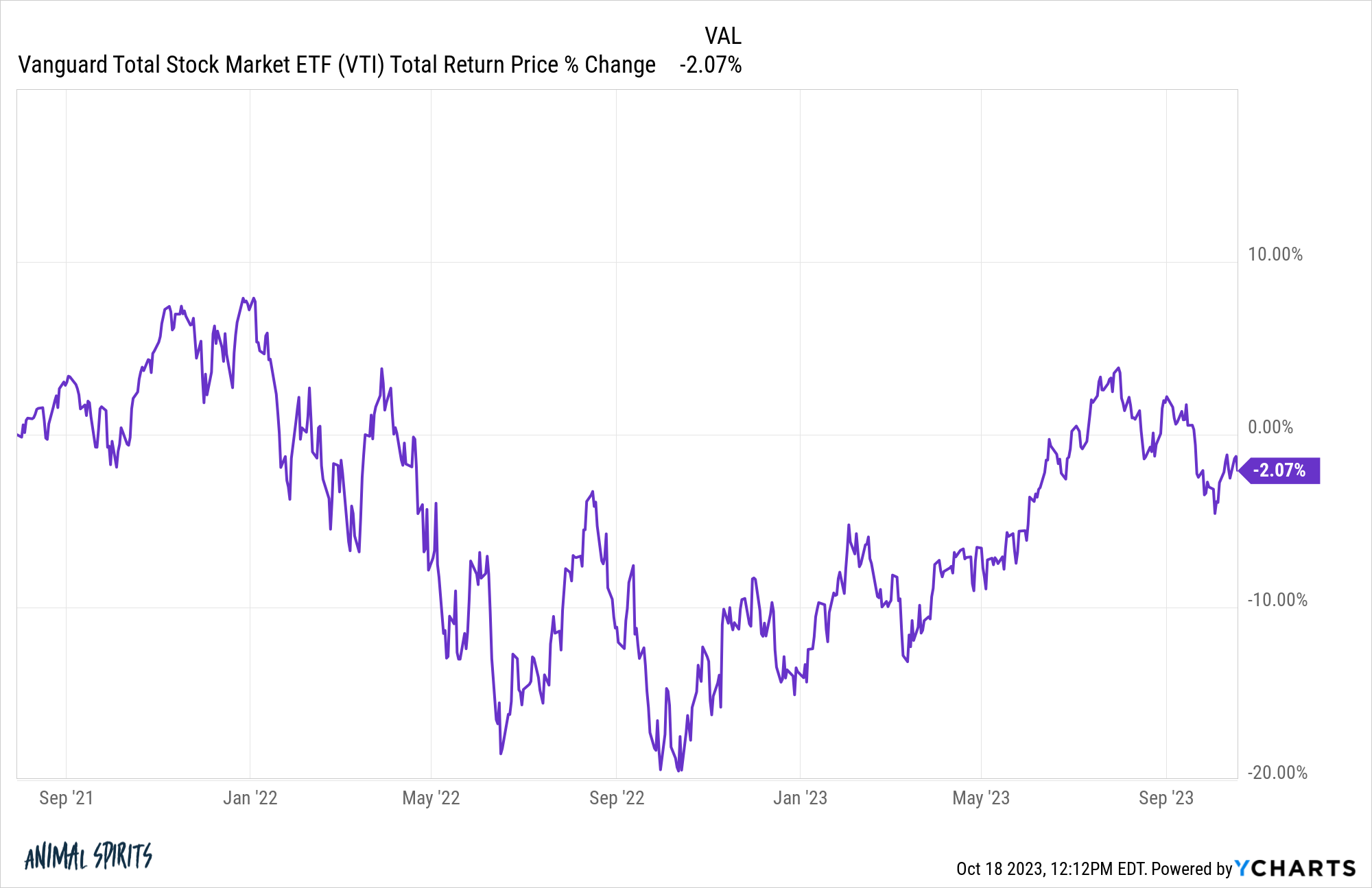A reader asks:
I began investing in an S&P 500 index fund in the summer of 2021. Is that unfortunate, good or bad timing?
From 1928-2022, the S&P 500 achieved annual returns of 9.6% per year.
We all know the stock market doesn’t simply offer returns year in and year out in the 9-10% range. Stock market returns in a given year are anything but average.
In fact, the average return in an up year going back to 1928 is a gain of a little less than 21%. The average loss in a down year is a loss of just under 14%.
The stock market in this time has been positive in roughly 3 out of every four years.
To keep things simple, let’s use +20% for the up years and -15% for the down years since I like nice round numbers.
If the stock market earned returns of +20%, +20%, +20% and -15% the annualized return would be +10% per year.
Still with me?
Obviously, you don’t just get three years of gains and then one year of losses in that order and there is a wide range around those +20% and -15% averages. But these numbers can be instructive when it comes to thinking about the lifecycle of investing, especially when you’re young and just starting out on your investing journey.
Let’s say you save $1,000 a year for the next 40 years. We’ll use our same gain and loss averages along with the probability that stocks will be up three out of every four years, meaning you get ten down years and 30 up years.
Now let’s look at two different scenarios:
Scenario A: You get -15% annual losses in the first ten years followed by 30 years of +20% annual gains.
Scenario B: You get 30 years of +20% annual gains followed by ten years of -15% annual losses.
As a person who is saving periodically which scenario should you choose?
In Scenario A, where your returns were dreadful in the first ten years but wonderful in the ensuing 30 years your final balance after 40 years would be $2.5 million.
In Scenario B, where your returns were wonderful in the first 30 years but dreadful in the final 10 years your final balance after 40 years would be just over $200,000.
In Scenario A, you’re saving and investing in your most important compounding years during a brutal bear market.
In Scenario B, you’re saving and investing in your most important years during a rip-roaring bull market.
Obviously, these examples are not realistic. If the stock market fell 15% for 10 straight years, that’s a loss of 80%. Gaining 20% for 30 straight years would give you a return of nearly 24,000%.
The idea here is that you should want poor returns early on in your investing lifecycle assuming you are a periodic saver over time (most of us are). You shouldn’t be cheering for all-time highs every day. You should get on your hands and knees and pray for corrections, bear market and market crashes.
Since August of 2021, the U.S. stock market has essentially gone nowhere, falling roughly 2% in total:

If you’ve been diligently investing into the stock market on a regular basis in this time you’ve had the ability to slowly but surely build up a position. Some prices have been higher, some lower but the fact that stocks have gone nowhere is a good thing for those of us who are net savers.
Down markets allow you to buy more shares at lower prices, higher dividend yields and lower valuations.
If you are just starting out as an investor the best thing that could happen to you is a series of down markets. I can’t promise the stock market will have a similar risk-return profile going forward.
The stock market does not always cooperate and give you what you need but this is the mindset you should take when thinking about building wealth over time.
Poor returns aren’t always a bad thing as long as they lead to better returns down the road.
We discussed this question on the latest episode of Ask the Compound:
The tax man Bill Sweet joined me on today’s show again to answer questions about expected returns in the stock market, changing income brackets and your finances, getting a late start on tax-deferred savings and borrowing from your portfolio.
